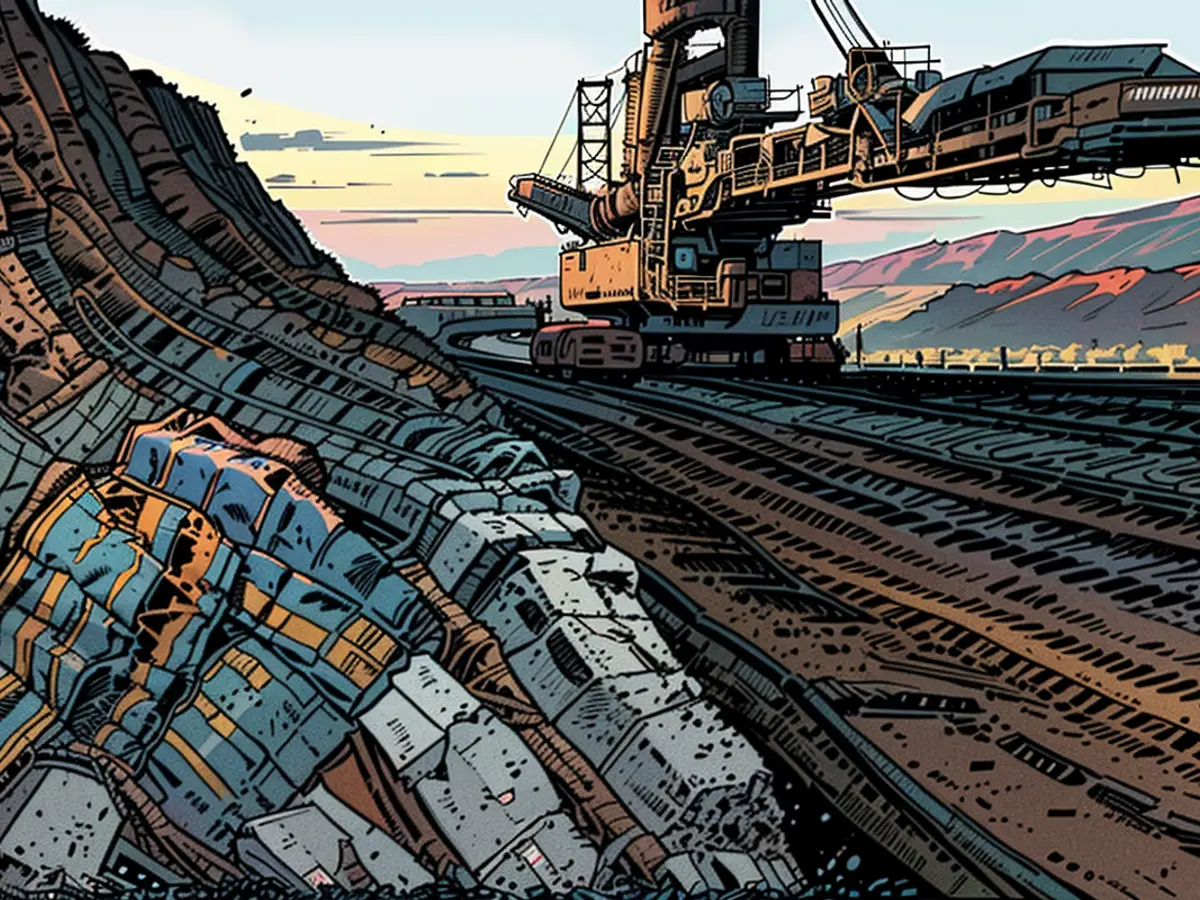climate protection - Alliance: Brandenburg's climate plan doesn't go far enough
A Brandenburg Climate Alliance considers the goals of the coalition government for more climate protection by 2045 insufficient. The Alliance, a coalition of nature and transport organizations, gave the Climate Plan a grade of five, or failing, in the areas of Energy, Industry, Transport, Forestry, and Building.
Environmentalists demand, among other things, an earlier coal phase-out than 2038 and more efforts in transportation and agriculture. "Basically, it's clear to us that the measures are not sufficient to meet the self-set reduction targets," said Lisa Ramroth from the Climate Alliance.
There were no binding targets for reducing the emission of climate-harmful substances, a secure funding, and the efforts did not extend beyond 2030. "We only have about 20 years left to act," warned Ramroth. Therefore, immediate action is required. However, she did acknowledge: "It's not all bad."
Approximately 100 measures are intended to achieve climate neutrality
The State Government passed the so-called Climate Plan in March, which primarily targets administrations, authorities, and the economy. The strategy aims to contribute significantly to achieving climate neutrality in the state by 2045 and saving climate-damaging carbon dioxide (CO2). Climate neutrality means that no new emissions of climate-damaging gases should be allowed.
The plan aligns with a regulation of the state government. It involves about 100 measures, including the planned shutdown of the lignite-fired power plant Jänschwalde by 2038, as well as more passengers in public transportation and the expansion of cycling infrastructure. The Greens accused Minister President Dietmar Woidke (SPD) of delaying the plans.
Climate Alliance demands earlier coal phase-out
An earlier coal phase-out by 2030 is "still the most effective measure to reduce emissions in the country," said Ramroth. The AfD, SPD, and CDU - the parties that have been leading in the polls for the state election in September so far - reject an early coal exit.
The chairman of the Brandenburg Nature Conservation Association (NABU), Björn Ellner, demanded more climate protection in agriculture. Necessary are a smaller animal population in livestock farming, less use of manure and pesticides, and a greater protection of moors, said Ellner.
The deputy chairwoman of the German Transport Club (VCD), Anna Dücksch, sees such large gaps in the Climate Plan that the Paris Climate Agreement to limit global warming to as close to 1.5 degrees Celsius as possible may not be implemented. She welcomed the goal of increasing the share of rail and bus, cycling, and walking to at least 60 percent by 2030. However, it is unclear how the remaining 40 percent will become climate neutral, said Dücksch.
- The Brandenburg Climate Alliance, comprised of nature and transport organizations, critiques the Climate Plan's goals for climate protection by 2045 as insufficient, giving it a failing grade.
- The State Government, led by the SPD, passed the Climate Plan in March, which includes about 100 measures to achieve climate neutrality by 2045, targeting administrations, authorities, and the economy.
- Environmentalists and members of the Climate Alliance, such as Lisa Ramroth, advocate for an earlier coal phase-out than 2038, accelerated efforts in transportation, and increased climate protection in agriculture.
- Anna Dücksch, the deputy chairwoman of the German Transport Club (VCD), voices concerns that the Climate Plan may not fully implement the Paris Climate Agreement due to significant gaps, specifically regarding the remaining 40% required to become climate neutral by 2030.








